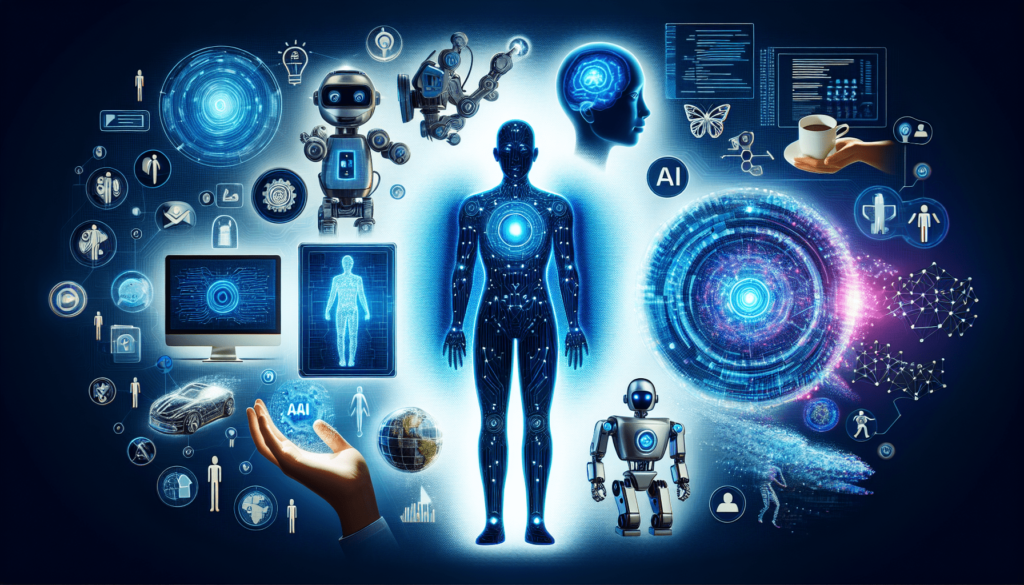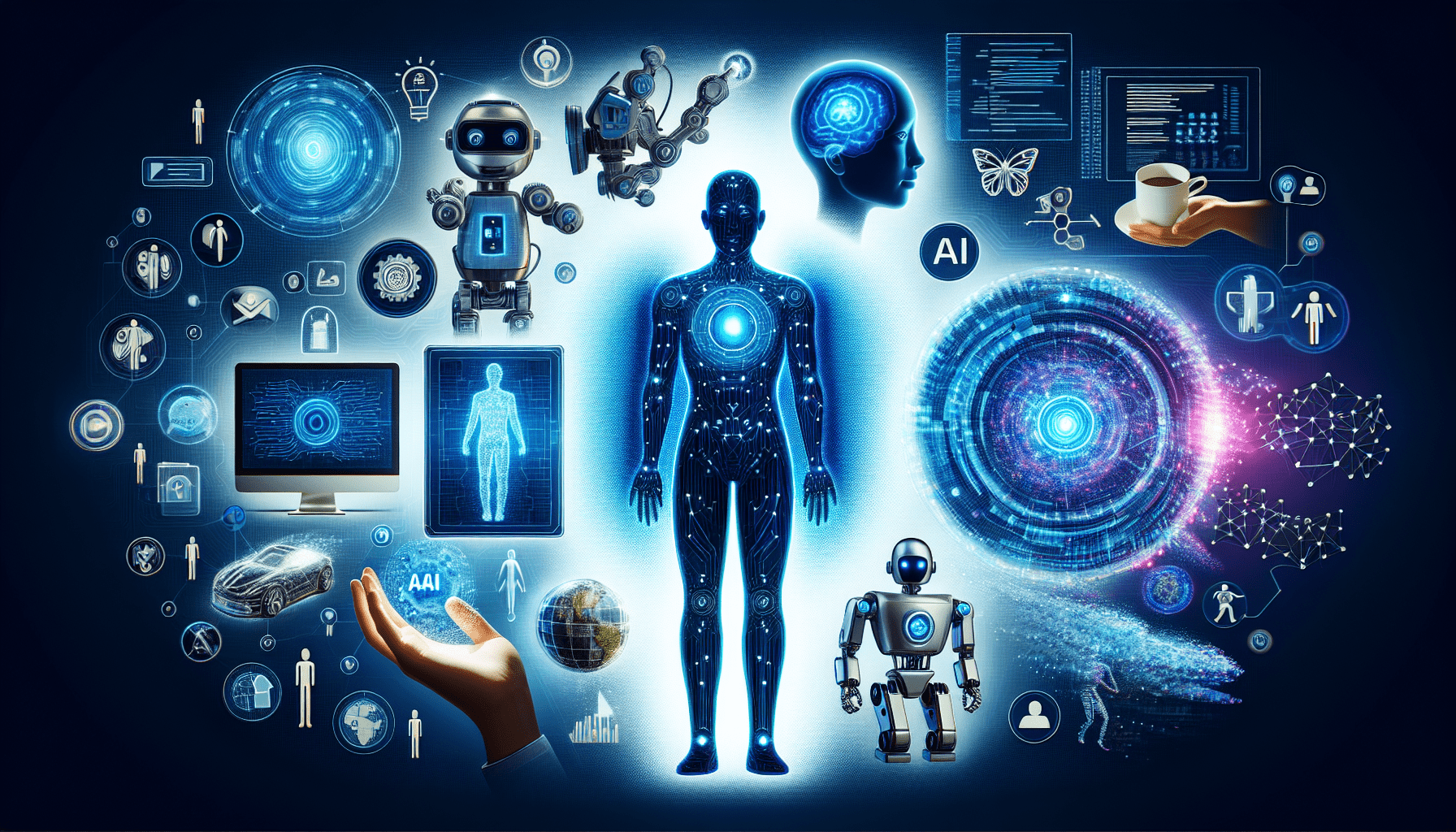Understanding the Different Types of Agents in AI
Have you ever wondered about the diverse types of agents in Artificial Intelligence (AI) systems? Let’s delve into the world of AI and explore the five primary types of agents in this technology.
Intelligent Agents
Intelligent agents are entities that perceive their environment and take actions to achieve their objectives. These agents can receive inputs, process the information, and make decisions based on predefined rules or learning algorithms. A classic example of an intelligent agent is a chatbot that interacts with users and provides responses based on the input it receives.
Reactive Agents
Reactive agents are AI agents that do not have an internal state or memory. Instead, they react solely based on the current inputs they receive at any given moment. These agents are ideal for tasks that do not require long-term planning or memory retention, such as playing chess or responding to voice commands.
Deliberative Agents
Deliberative agents, also known as cognitive agents, have the ability to plan, reason, and make decisions based on their internal goals and external stimuli. These agents can analyze complex problems, consider multiple solutions, and choose the best course of action. Deliberative agents are commonly used in fields like robotics, where long-term planning and decision-making are crucial.
Mobile Agents
Mobile agents are intelligent agents that can move autonomously in their environment to accomplish specific tasks. These agents can transfer from one system to another, carrying out computations or collecting data as they move. Mobile agents are often used in distributed computing systems, network routing, and information retrieval applications.
Utility-Based Agents
Utility-based agents make decisions based on maximizing a utility function that represents the agent’s preferences or goals. These agents evaluate different actions based on the expected utility they provide and choose the one that maximizes their overall benefit. Utility-based agents are used in various applications, such as recommender systems, resource allocation, and autonomous vehicles.
Comparing the Types of Agents in AI
Now that we’ve discussed the different types of agents in AI, let’s compare their characteristics to gain a better understanding of how they function in various applications.
| Agent Type | Characteristics |
|---|---|
| Intelligent | Perception, action, decision-making |
| Reactive | Immediate reaction, no memory |
| Deliberative | Planning, reasoning, decision-making |
| Mobile | Autonomous movement, task execution |
| Utility-Based | Goal-oriented decision-making |
By comparing these agent types, we can see how each one offers unique capabilities and benefits in different AI systems and scenarios.
Use Cases for Different Types of Agents
Let’s explore some real-world applications where each type of agent plays a critical role in delivering efficient and intelligent AI solutions.
- Intelligent Agents: Chatbots in customer service, virtual assistants, recommendation systems
- Reactive Agents: Games like chess or Go, voice assistants for quick responses
- Deliberative Agents: Autonomous vehicles, robotic systems, automated planning software
- Mobile Agents: Network monitoring and management, data collection in distributed systems
- Utility-Based Agents: Dynamic pricing systems, resource allocation in manufacturing, personalized recommendation engines
By understanding the use cases for each type of agent, you can leverage their strengths to build robust AI systems that meet your specific requirements.
Challenges and Limitations
While AI agents offer numerous advantages in various applications, they also face challenges and constraints that impact their performance and effectiveness. Some common challenges and limitations include:
- Computational Complexity: Developing intelligent agents with sophisticated decision-making capabilities can be computationally intensive and resource-demanding.
- Data Quality and Bias: AI agents rely on data for learning and decision-making, so issues like data bias, incompleteness, or inconsistency can affect agent performance.
- Ethical Concerns: AI agents may raise ethical questions related to privacy, transparency, accountability, and fairness in their decision-making processes.
- Interpretability: Understanding how AI agents reach their conclusions or decisions can be a challenge, especially in complex systems like deep learning neural networks.
By addressing these challenges and limitations, researchers and developers can enhance the reliability, scalability, and trustworthiness of AI agents in diverse applications.

The Future of AI Agents
As technology advances and AI research progresses, the future of AI agents holds immense potential for innovation and transformation across industries. Here are some key trends and developments shaping the future of AI agents:
Multi-Agent Systems
Multi-agent systems involve multiple AI agents interacting and collaborating to achieve complex tasks or solve intricate problems. This approach mimics social or biological systems where agents work together towards shared goals, leading to more robust and adaptive AI solutions.
Explainable AI
Explainable AI focuses on enhancing the transparency and interpretability of AI systems, allowing users to understand how AI agents make decisions or recommendations. By providing explanations for AI behavior, this approach promotes trust, accountability, and ethical decision-making in AI applications.
Reinforcement Learning
Reinforcement learning is a machine learning technique where agents learn to perform tasks by receiving rewards or penalties based on their actions. This approach enables AI agents to acquire new skills, optimize their behavior, and adapt to changing environments, making them more flexible and autonomous.
Human-Agent Collaboration
Human-agent collaboration explores how AI agents can work alongside humans in complementary roles, enhancing productivity, creativity, and decision-making in various domains. By combining human expertise with AI capabilities, this collaborative approach can unlock new opportunities for innovation and problem-solving.
Ethical AI Design
Ethical AI design focuses on integrating ethical principles, values, and considerations into the development and deployment of AI systems. By prioritizing fairness, transparency, accountability, and social impact, this approach aims to ensure that AI agents align with ethical standards and contribute positively to society.
As AI agents continue to evolve and proliferate in our daily lives, staying informed about these trends and developments can help you navigate the dynamic landscape of AI technology and harness its full potential for positive impact.

Conclusion
In conclusion, understanding the different types of agents in AI is crucial for harnessing the power of artificial intelligence and building intelligent systems that meet diverse needs and objectives. By exploring the characteristics, use cases, challenges, and future trends of AI agents, you can gain valuable insights into how this technology is shaping the present and future of innovation across industries and domains. Stay curious, stay informed, and continue to explore the fascinating world of AI agents to unlock new possibilities and opportunities in the realm of artificial intelligence.

